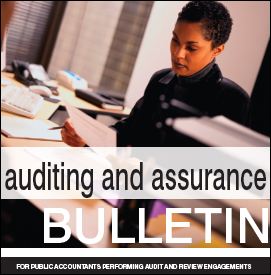The CCAB guidance on Ethical Dilemmas Case Studies for Professional Accountants in Public Practice illustrates how the ethical codes of the CCAB bodies can be applied by professional accountants working in public practice. These scenarios are not intended to cover every possible circumstance, but instead to outline key principles and processes that could be considered when attempting to identify, assess and resolve ethical problems in line with the ethical codes. Six case studies address the following matters:
· Case Study 1 - Dealing with staff performance issues;
· Case Study 2 - Improper accounting for sales;
· Case Study 3 - Conflicting clients’ interests;
· Case Study 4 - How much to disclose to the finance director;
· Case Study 5 - Placing unreasonable expectations on a student;
· Case Study 6 - Financial interest.
According to the guidance, a professional accountant in public practice “will want to act in the best interests of his or her clients. However, he or she also has a responsibility to act in the public interest, which will require objectivity to be exercised at all times (not only when providing assurances to third parties). The duties of the accountant in public practice who faces an ethical dilemma cannot be easily reconciled. On the one hand, it is good business practice to work closely with your clients; on the other hand, you will sometimes be expected to challenge their decisions, and even distance yourself from them.”




